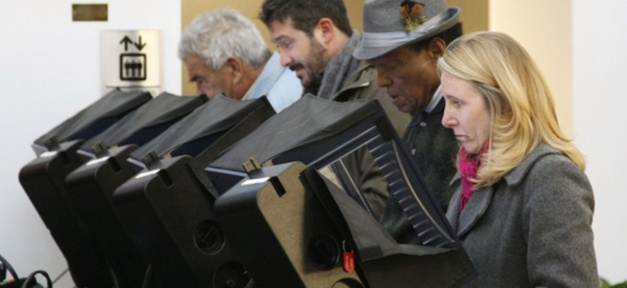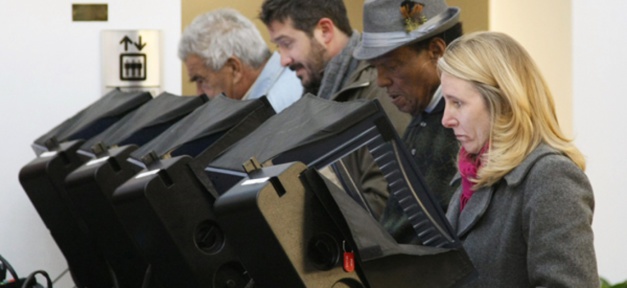
Credit DR
While abstention is raising election after election, and voters do not seem to be caring anymore about political life, the internet tool seems to be in charge of changing things. “The tools of digital democracy allow a reinforced transparency within public policies, putting them to the test of discussion, evaluation and even, in some cases, co-building.” explains Périne Brotcorne, (sociologue) to the Work foundation of Brussels/ Namur University, in a report on digital. Web is a tool more and more present within our societies, and may be able to revitalize democracy. And thanks to it was born the “e-citizen”.
One of the first initiatives in terms of democracy 2.0 is electronic voting. An alternative which may convince voters going to vote, saving time and even saving money in a matter of functionning costs. It is the case of Estonia where 31% of the population voted through internet for the 2014 parliamentary elections. The country implemented a digital ID which allows online vote, and even via one’s smartphone since 2012. In Brazil, voters are voting via machines since 1996. A proof of the effectiveness of the practice. Nevertheless until now the system did not show efficiency everywhere. Netherlands in 2008 and Ireland in 2012 decided to get rid of those machines to vote. The technique remains to be improved to actually convince citizens.
Internet, also, allows voters to express themselves more openly, and to be heard by political leaders. Web allows to bring closer politics and citizens. And Brazil is one of the pioneer on the matter of citizens’ involvement on social networks and platforms. The project “Vote online” which offers an accessible platform to bills under review in the Congress and allows internauts to vote for or againnst those projects is a great succes. From 13 000 users in 2010, it involved 140 000 in 2014.
In Ireland, from 2010 a decision was taken to fight euroscepticism via the Puzzled by policy platform to better understand political decisions and improve public debate. Moreover, the website has a discussion forum whose main issues are transmitted to political leaders who can, then, bring answers to the need of their citizens.
Different platforms, different goals: citizinvestor.com allows US citizens to fundraise public infrastructures. They can, then, invest in the renovation of a swimmingpool for their neighbourhood, building of new parks or installation of more playgrounds for kids. As any crowdfunding platform, the fundraised amount may be used only if the total amount needed for the project is reached.
Voters seems to invest little by little the numerique sphere. And even if the road is long, democracy 2.0 really do improve politics as explained by Amanda Clarck, PhD from the Oxford Internet Institute: “Internet did not resolve the political crisis faced by democracies [...] But it does not mean Internet is not in capacities of extending the involvement sphere of some people, as long as it offers to citizens new opportunities to contribute to governmental institutions.” Democracy 2.0 shound expand in the upcoming years and may be convincing citizens to get involve in the policy making process.




























